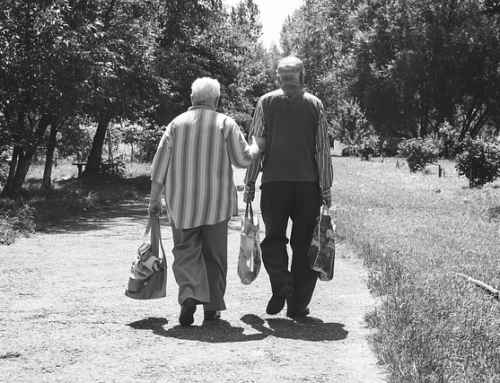by Eddie Pipkin

Image by Thomas Breher from Pixabay
Well, I turned 60 yesterday. Hopefully, I survived the day. I finished the blog beforehand, so that even if I didn’t make it through the outlandish observance I had planned, you will still have one final blog to remember me by. More self-aggrandizing details on my personal “birthdayathalon” when you click through to the full blog, but the point of writing about this watershed moment in this space on this occasion is to offer some thoughts on the importance of acknowledging milestones – and the variety of responses such recognition can take, each appropriate to its own context, loud or quiet, serious or playful, choreographed or free form.
Milestone events are a regular part of our personal lives and the lives of the institutions that we serve, and people react to them in different ways. I had breakfast with a friend this week who talked about his shrug-of-the-shoulders reaction to the “big-0” birthdays, and I share his nonchalance about these numerically memorable anniversaries, but I have other friends who are greatly impacted by them as era markers. Some people throw a big party or take a bucket list trip. Some people make a pilgrimage of silence to the top of a sacred hill. Some people let them pass by quietly with only the smallest of adjustments to their regular routine.
As for me, I guess I fall somewhere in between. I’m not exactly wigged out by starting my seventh decade, but I had a point to prove about my physical vigor at this stage (being a relentlessly outdoorsy type, but in no sense a triathlete or hard-core competitor). I conceived the concept of the “birdayathalon,” which will combine some of my favorite active-ities, but in a non-competitive setting. I’ll start with a sunrise run on the beach and an ocean swim, followed by a round of pickleball, a paddling adventure on a local creek, and a bike ride in the hills that will end at an awesome catfish restaurant, at which point I will stuff myself silly. It’s a full day, but doable with guest participation along the way by some people I love. It’s tailor-made for me, which is how such special celebrations should be: custom-designed for the individual or institution they are celebrating.
Or not even limited to celebrations, whatever the word for the opposite of celebration is, maybe an “organized lamentation” (cue the Psalms). There are times to grieve transitions or the passing of an era, and we should honor those moments ceremonially in the same way we do our victories. How much healthier local congregations would be if they gave people more space to do this sacred communal activity, to grieve for the passage of things that were once a fundamental part of their identity. When difficult change has to come – and difficult change will always be a periodic part of our institutional lives together – it would be such a gift to those who grieve that change for their heartache to be acknowledged and for them to be allowed to have a “funeral” of sorts for that which they are losing. This is rarely done. Creating space for public grief seems at odds with the positive momentum we want to communicate about the new thing that is taking the old thing’s place, but denying an emotion is not the same thing as healing. (Jesus might have skipped the crying part when he heard that his friend, Lazarus, had died: after all, he knew he could raise him back to life. Why not just smile, spout a cheerful aphorism, and get on with the miracle. But what is lost is what is lost, and the pain is real, even if on the road to an eventual positive outcome.)
Sometimes, transitional moments can even be ambivalent (which, in case you forgot, means equally strong feelings in multiple directions). I’m not really sure what a great scenario is for celebrating ambivalent transitions, but I suppose it involves giving people free reign to genuinely express themselves and share how they are feeling in the here and now (and maybe how they hope to be feeling in the future). Just today in the NY Times, I read an article about a focus group of Americans who were asked about whether they thought the country’s best days are ahead of us or behind us or happening right now. About half the group said ahead and half the group said behind, but zero persons voted for happening right now. That scenario is painfully analogous for many local churches, where moments of profound change cause people to dramatically choose sides. It’s hard to figure out how to publicly celebrate/mourn such moments, which is why we often decline the opportunity. But if we do the work of figuring out what such public engagement of such instants would look like, it could be a healthy process, analogous to a vaccine against future conflict and discord.
Whatever the occasion, be it the successful conclusion of a stage of life, the denouement of a difficult season, or the arbitrary anniversary of “big-0” dates, we should make a point of acknowledging them in a way that is fitting for our time and context. Anniversaries in the local church can serve as a useful framework for celebrating our accomplishments, acknowledging the hard work of those who have given their all, embracing a time of healing, thoughtfully evaluating our narrative, casting a vision for the future, and deepening our relationships.
- Celebrating Accomplishments.
We should take a victory lap when things go well and major goals are accomplished. Humility is important, and the acknowledgment of any big moment should include publicly noting how “it takes a village” to achieve any goal (personal or institutional), but not only does publicly celebrating make everyone feel good about the hard work they have invested, it also sets the table for moving on to the next goal.
- Thanking the Team.
We can’t thank people enough for the work that they do to support us and support our vision and goals. We can and should do this through reaching out privately, offering verbal and written expressions of our gratitude, but there is something special about expressing that gratitude publicly. It is a righteous reward for the time and effort that people have invested in pursuit of something bigger than themselves.
- Inviting Healing.
When people have become estranged, a milestone moment can provide a pretext for getting them together in a moment of reconciliation. Anniversaries and other celebrations provide a reason to reconnect to people who have become distant, disengaged, or damaged. It feels so awkward to reach out to those people when there is relationship tension and hurt feelings, but the anniversary gives everyone an excuse to gather for ‘old times’ sake,’ and in such an environment real healing can begin.
- Evaluating Our Narrative.
Anniversaries and milestones provide a perfect framework for a thoughtful assessment of where we’ve been, what we’ve done, what our priorities have been, and what all that tells us about who we really are. An authentic inventory can be revelatory. It can help us get over the hump of “stuckness.” It can be cathartic, if done with clear eyes and an open heart. But we generally need an excuse to engage in such self-evaluation, and anniversaries give us that pretext.
- Looking Ahead Fearlessly.
Having considered our history and our identity with unclouded sight, we can find ourselves in an excellent position to look forward to our next phase. Anniversaries and related celebrations are an excellent time for vision casting initiatives. Having celebrated the first 60 years, what would we like the next 60 to look like, and what steps will we take to bring that vision to fruition?
- Deeping Relationship Bonds.
I have talked to quite a few family members during this birthday week – many of whom I haven’t talked to in ages. A “big-0” moment becomes a time to celebrate lasting friendships and to also think about the people we’d really like to commit to spending more time with more often. Inviting in other people who know us well to share their thoughts on the celebration is a great way to boost bonds and remember what is truly significant. And having done so, we have built a great launching pad for reconnecting and deepening those relationships in the future.
Thinking and writing about milestones, I was reminded of the life and achievements of former University of Central Florida President John C. Hitt, who passed away in February. Described by many as a “visionary leader,” he led the university, now one of the nation’s largest, through an explosively transformative 26-year tenure. He was the leader who served at the helm during my years of study and teaching there. He led by focusing on a clear set of measurable metrics, which he articulated on the day he was inaugurated:
- To offer the best undergraduate education in the state of Florida.
- To achieve international prominence in key programs of graduate study and research.
- To provide an international focus to curricula and research programs.
- To become more inclusive and diverse.
- To be America’s leading partnership university.
While one can certainly argue whether those individual goals have been fully achieved, there is no doubt that, due to the relentless focus of the teams that President Hitt empowered and led, UCF has made dramatic progress in each of those areas that he established as a priority. It was a clear set of goals, and part of their pursuit was a regular celebration of milestones. There were pep rallies and recognition dinners and awards ceremonies and public acknowledgments and celebratory marketing and leadership retreats and formal initiatives of recalibration and press interviews and victory parties.
All of these things are necessary, whether they are large-scale and rambunctious or intimate and soul-searching. Or why not both? We should celebrate as much as possible with as many people as possible. We should demonstratively thank those who deserve thanking, both publicly and privately. We should grieve when shared grief is necessary to help our community move forward. We should gather our core leaders together to process our journey. This is how we grow. This is how we stay energized. This is how we value what has come before without being chained to the past. Every celebration and recalibration propels us towards the next celebration.
Or do you feel about anniversaries and other milestone moments? Do you embrace them and go all out in palling celebrations? Or do you prefer a quieter process of thoughtful self-reflection? How have you led the institutions you have served through transitional moments, giving people appropriate forums for celebrating and grieving? How can attention to marking such moments make us stronger as a community? Share your stories!
AUTHOR’S NOTE: I made it through the birthdayathalon successfully. It was a glorious day with many of my favorite activities and indulgences, and it was shared by people I love. Thanks for all the birtday wishes.







Leave A Comment